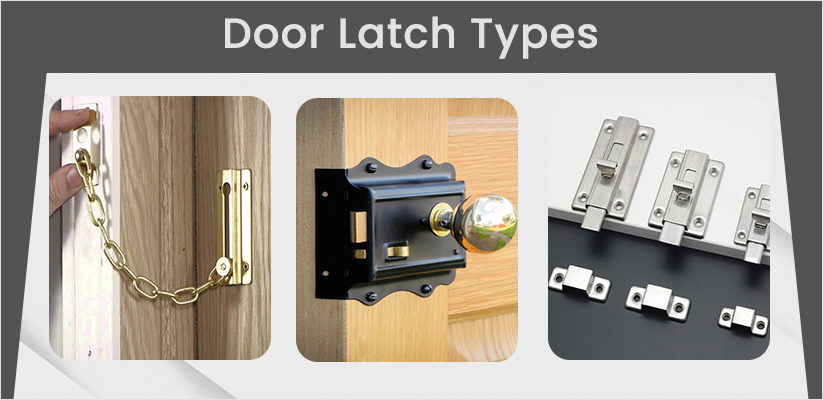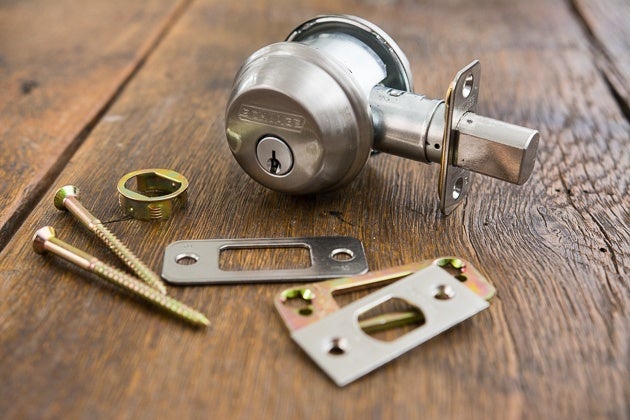Introduction: Mortise Locks
A mortise lock is a type of lock that is installed inside a pocket, or mortise cut into the side of a door or piece of furniture. This makes them stronger and more secure than other types of locks, such as rim locks, which are mounted on the surface of the door. This embedded design provides superior resistance against forced entry, making them a popular choice for high-security applications.
In this comprehensive exploration, we highlight aspects of mortise locks, including their historical journey, different types, installation complexities, and future technology integrations.
Historic Tapestry of Mortise Locks Unveiled
The roots of the mortise lock go deep into history, originating from ancient civilizations and evolving into the sophisticated security systems we know today. Mortise locks have been used in America as part of door hardware systems since the second quarter of the eighteenth century. In these early forms, the mortise lock mechanism was combined with a pull to push the door open.
Tracing their evolution over time provides valuable insight into the reliability and adaptability of mortise locks.
A Multifunctional: Types of Mortise Locks
There are many different types of mortise locks, but some of the most common include:
1. Deadlocks: The Stalwarts of Security
These locks combine the features of a deadlock and a latch lock. They have a deadbolt that can be locked with a key, and they also have a latch that can be operated with a doorknob or handle. Deadbolt locks are often used for exterior doors.

- Function: These no-nonsense heroes prioritize security above all else. They boast a deadbolt that remains unyielding unless engaged with a key, making them ideal for exterior doors and high-value spaces.
- Applications: Think exterior doors, sheds, garages, and any area demanding top-notch protection.
2. Latch Locks: Convenience Meets Security
These locks have a latch that can be operated by the doorknob or handle. These can also be closed with a key. Latch locks are often used for interior doors.

- Function: Balancing security with ease of use, latch locks feature a spring-loaded latch that engages when the door closes and retracts with a doorknob or handle. They can also be secured with a key for added peace of mind.
- Applications: Perfect for interior doors in homes and offices, where frequent access is needed while maintaining a good level of security.
3. Deadbolt Locks: The Hybrid Defenders
These locks combine the features of a deadlock and a latch lock. They have a deadbolt that can be locked with a key, and they also have a latch that can be operated with a doorknob or handle. Deadbolt locks are often used for exterior doors.

- Function: These versatile warriors combine the strengths of deadlocks and latch locks. They possess a key-operated deadbolt for enhanced security and a latch for casual closing/opening.
- Applications: They excel in securing exterior doors, offering the best of both worlds – robust protection and convenient daily use.
Beyond the Basics: A Glimpse into Specialty Mortise Locks
A. Mortise Exit Locks
These locks are designed for use on exit doors in public buildings. They have a panic bar that allows people to quickly exit the building in case of an emergency.

- Function: Designed for public building exit doors, these lifesavers feature a panic bar that allows rapid exits during emergencies.
- Applications: They ensure smooth and safe evacuation in case of fire or other threats.
B. Mortise Tubular Locks:
These locks are smaller and more compact than traditional mortise locks. These are often used around furniture or in tight spaces.

- Function: Designed for public building exit doors, these lifesavers feature a panic bar that allows rapid exits during emergencies.
- Applications: They ensure smooth and safe evacuation in case of fire or other threats.
C. Mortise Electromechanical Locks:
These locks can be operated electronically using a keypad, card reader or other device. These are often used in high-security applications.

- Function: Embracing the digital age, these tech-savvy locks can be operated electronically via keypads, card readers, or even smartphone apps.
- Applications: Perfect for high-security areas like data centers, server rooms, and access-controlled buildings.
Choosing The Right Mortise Lock:
Selecting the ideal mortise lock hinges on several factors:
- Application: Consider the door's location, security level required, and frequency of use.
- Security Level: Opt for deadlocks or deadbolt locks for high-security needs, while latch locks suffice for internal doors.
- Door Material and Thickness: Ensure the lock size and mechanism compatibility with your door.
- Additional Features: Explore options like fire ratings, auto-locking mechanisms, or even smart lock functionalities for added convenience and security.
By understanding the diverse world of mortise locks and carefully matching their strengths to your specific needs, you can unlock a realm of enhanced security and peace of mind.
Benefits of Using Mortise Door Locks
- Mortise locks are highly secure, require a key for access, and offer superior durability.
- They provide excellent protection against forced entry, better than traditional locks.
- Installation is quick and easy with professional locksmiths.
- Stylish designs in a variety of colors make them a fashionable choice for doors.
- Mortise locks combine security, simplicity, and style, making them increasingly popular.
FAQs: Mortise Locks Types
Q1: Are mortise locks suitable for all door types?
Mortise locks are versatile and can be installed on various door types, including wooden and metal doors.
Q2: Can I install a mortise lock on my own?
DIY installation is possible, but professional installation is recommended for optimal security.
Q3: Do modern mortise locks work with smart home systems?
Yes, many modern mortise locks are designed to integrate seamlessly with smart home technology.
Q4: What is the lifespan of a typical mortise lock?
With proper maintenance, mortise locks can last for several decades.
Q5: Can mortise locks be rekeyed?
Yes, many mortise locks can be rekeyed to enhance security without replacing the entire lock.
Mortise Door Locks: A Comprehensive Conclusion
Mortise locks have emerged as a reliable and secure option for door security.
This comprehensive guide covers their historical journey, types, installation and maintenance, benefits, and future trends.
Armed with this knowledge, individuals can make informed decisions to effectively protect their assets.





